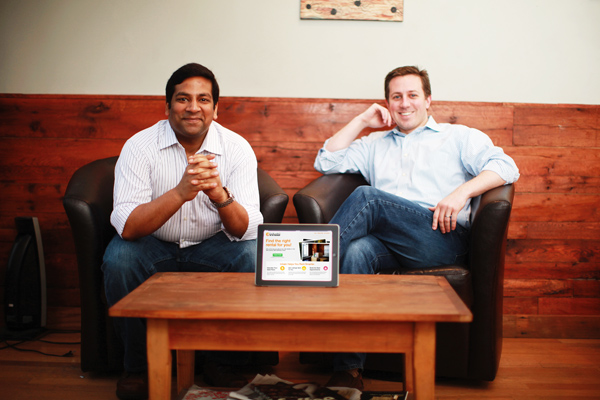There was no skirting the issue.
Cofounders Jameel Farruk and David Friedman had to decide whether or not to shut their startup down. It was the fall of 2012, one year after the pair launched Inhabi, a matchmaking service for renters and landords.
It wasn’t a question of passion or of drive, Farruk said. It wasn’t about the quality of the cofounders’ working relationship.
Inhabi had always been self-funded, so the matter at hand was of a more practical nature.
“We had to ask ourselves real questions like, ‘How do you keep the lights on? How do you keep people’s wives in school?'” Farruk said.
It’s the blessing and the curse of bootstrapping: build for revenue fast or fail before you hit your stride. Ultimately, the cofounders, who had cut their teeth at Venmo, decided to shut Inhabi down.
Both Friedman and Farruk landed on their feet: Friedman is the CTO of Real Food Works, the venture-backed healthy meal subscription service run by Lucinda Duncalfe. Farruk runs client relations at Callowhill interactive agency Brolik.
Here’s what happened to the startup, what the cofounders learned and why they don’t have any regrets (except maybe one).
- Identify your target market as soon as possible. Both founders said that by the time they realized their target market, it was too late. Inhabi should have focused on the lower-tier landlords, or those who have a harder time finding tenants, rather than the high-end landlords. The startup had a lot of paying customers, most of whom were the lower-tier landlords. “We weren’t really listening to our customers enough along the way,” Friedman said.
- Don’t let the vision overshadow the reality. It’s easy to drink the startup Kool-aid, Farruk said. Seeing Venmo’s enormous success gave us the guts to go out on our own, Farruk said, but “sometimes businesses are not supposed to work and it has nothing to do with how smart or capable the entrepreneur is.” It’s important to realize that, Farruk said. “Fortunately for us, we were able to pull out right at that danger point,” he said. “Nobody had to sell a home or get rid of any cars.”
- Your fellow entrepreneurs can act as a sniff test. The Inhabi cofounders turned to RJMetrics cofounders Bob Moore and Jake Stein for a second opinion. “We asked them, ‘Would you fight or walk away?'” Farruk said. They said they’d walk. This kind of honesty and support is what makes the Philly tech scene so rewarding, he said.
- Look for other exit options. Friedman said his one regret is that he didn’t work harder to find new owners for the startup. “We didn’t push too hard on finding the next step for Inhabi because we both found great opportunities,” he said. (Salvaging startups has actually been a topic of discussion on the Philly Startup Leaders listserv and a recent Venturef0rth event.)
- It’s OK to fail and it’s even better to talk about it. “I think not enough people are honest about [failure],” Friedman said. “I love talking about failure, as weird as that sounds.” Both founders agreed that the startup culture here was supportive when they were frank about what was happening to Inhabi. “The culture here really means it when they say fail fast, and owning up to that is a huge part of it.”







